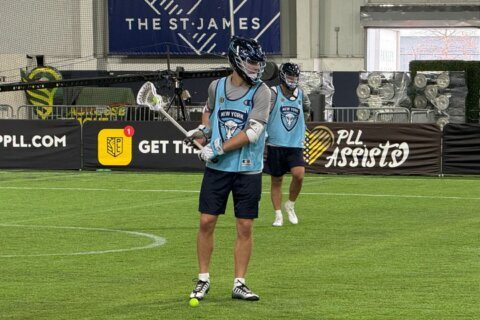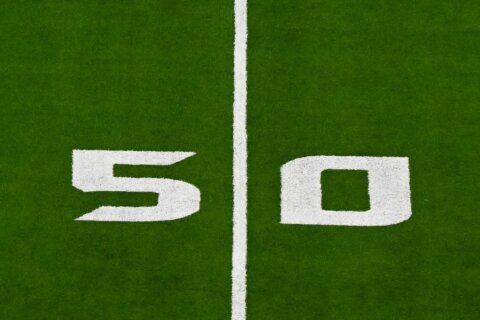WASHINGTON — In the never-ending chase for the next advantage in professional sports, teams are turning to personality profiles to diagnose and develop athletes according to their mental makeup. And while such systems used to be used only at the top levels, they have filtered down as far as high school, including one right here in the D.C. area.
The leading system is the Troutwine Athletic Profile (TAP), developed by Dr. Robert Troutwine, which is used by teams ranging from the Washington Nationals to DeMatha Catholic High School’s varsity baseball team.
The system was first used in football, perhaps most famously by the Indianapolis Colts as they decided to select quarterback Peyton Manning rather than Ryan Leaf with the top overall pick in the 1998 NFL Draft. They invited Dr. Troutwine into their war room, asking him various questions about which players’ aptitude was stronger in various situations. Dr. Troutwine gave his answers, but didn’t know that it would lead to the club taking Manning.
“When I walked out of there, if you had said ‘Who are they going to take?’ I wouldn’t have had any idea,” says Dr. Troutwine.
Manning has famously gone on to a Hall-of-Fame career, winning the MVP five times and the Super Bowl in 2006. Leaf, taken second by the San Diego Chargers, infamously, dropped out of the league after going 4-17 across parts of three seasons and has been in and out of trouble with the law ever since.
Many football fans have heard of the Wonderlic, a test given to NFL Draft prospects intended to shed light on their intelligence and aptitude. That test, which you can take yourself, is far closer to other standardized aptitude tests such as the SAT and ACT.
“The Wonderlic is a very narrow focus,” says Troutwine. “It’s a problem-solving test. That’s all it is.”
In contrast, the TAP measures personality traits, similar to an employment test.
“It’s more about looking at learning style,” says Troutwine. “You’re looking at the whole picture, but then breaking it down into different components. It’s the same as a scout breaking down skills; motivation, work ethic.”
The TAP was largely still a football-only program up until that point, but a stroke of fortune helped it make an unlikely transition to baseball. Current Seattle Mariners General Manager Jack Zduriencik was both a baseball and football coach at Austin Peay in the 1970s. After he was hired as the director of scouting for the Milwaukee Brewers in the late ‘90s, he brought the system into professional baseball.
The Mariners are now one of six teams — along with the Royals, Reds, Phillies, Braves and Nationals — who use the TAP.
Originally designed to help clubs make decisions on potential players before investing in them, the TAP has developed over the years to also diagnose how well players have taken to instruction over time. That’s where the system can be particularly useful to amateur athletic programs, like Coach Sean O’Connor’s DeMatha team.
“We had every player take the TAP,” O’Connor said in a recent interview. “From our perspective, we are going to use it to understand how to talk to a certain player. If I need to talk to a player about their performance, I’m going to have this information to be able to help him.”
Young athletes are in a constant state of emotional development, so regular testing every six to 12 months is encouraged for those age 12 to 16. But even at that point in our lives, the fundamental building blocks of our personalities remain fairly constant.
“It’s surprising — when you look at the law of averages, people stay pretty much the same,” says Troutwine. “There will be some changes, but people stay pretty consistent over time.”
He used to diagnose each profile himself, but has since created a subscription model for teams to use over time that doesn’t cost them additional money. That helps those such as Coach O’Connor, who will look year-to-year to see which aspects of his instructions are sticking with his players. At the high school level, you don’t have the ability to recruit or draft players the way you do at the college or professional ranks, so you have to work with the personalities you’re dealt.
“It’s funny that now that we tested our players, during our workouts I can see why certain players are struggling because of certain characteristics that the TAP picked up right away, be it lack of confidence, being insecure to make a decision, that absolutely shows up.”
If you’d like to see the test for yourself or your team, a free version will be available online for a limited time at taketheTAP.com.







